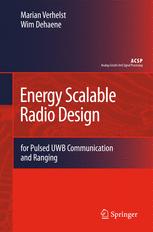

Most ebook files are in PDF format, so you can easily read them using various software such as Foxit Reader or directly on the Google Chrome browser.
Some ebook files are released by publishers in other formats such as .awz, .mobi, .epub, .fb2, etc. You may need to install specific software to read these formats on mobile/PC, such as Calibre.
Please read the tutorial at this link: https://ebookbell.com/faq
We offer FREE conversion to the popular formats you request; however, this may take some time. Therefore, right after payment, please email us, and we will try to provide the service as quickly as possible.
For some exceptional file formats or broken links (if any), please refrain from opening any disputes. Instead, email us first, and we will try to assist within a maximum of 6 hours.
EbookBell Team

5.0
20 reviewsSmart energy management, both at design time and at run time, is indispensable in modern radios. It requires a careful trade-off between the system’s performance, and its power consumption. Moreover, the design has to be dynamically reconfigurable to optimally balance these parameters at run time, depending on the current operating conditions.
Energy Scalable Radio Design starts by describing an energy-driven design strategy, tackling these implementation challenges for wireless communication systems. The strategy minimizes energy consumption and optimizes reconfigurability at all consecutive design steps, from system level down to circuit level. In addition, a novel implementation concept of "nested FLEXmodules" is introduced at digital RT-level, enabling highly scalable implementations, with minimal energy overhead.
Energy Scalable Radio Design continues by applying this design strategy to the design of an energy-efficient, highly scalable, pulsed UWB receiver, suitable for low data rate communication and sub-cm ranging. This book meticulously covers the different design steps and the adopted optimizations: System level air interface selection, architectural/algorithmic design space exploration, algorithmic refinement (acquisition, synchronization and ranging algorithms) and circuit level (RTL) implementation based on the FLEXmodule-concept. Measurement results demonstrate the effectiveness and necessity of the energy-driven design strategy.